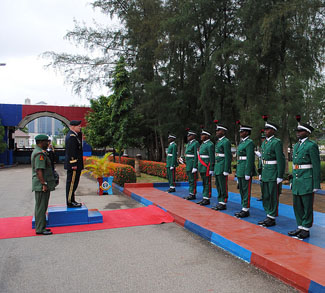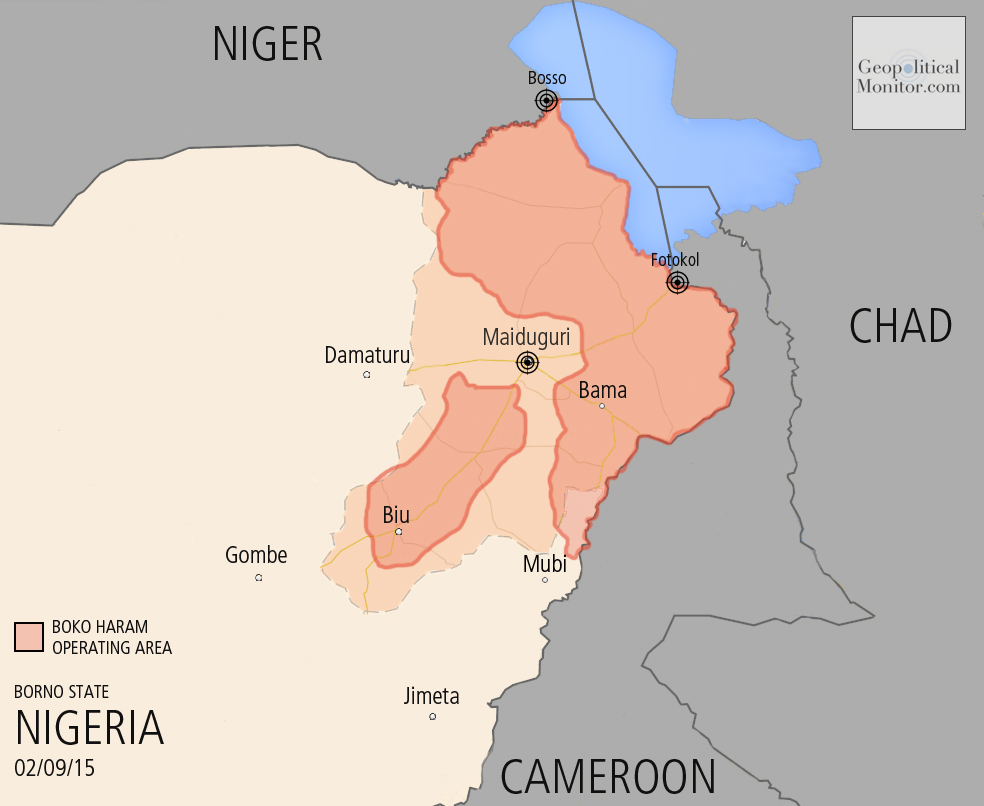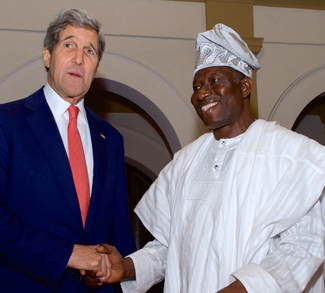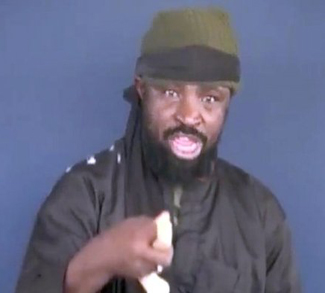Nigeria’s military has announced that Abu-Bakr Shekau, the leader of the militant group Boko Haram, died of a gunshot wound sustained when government forces attacked his hideout near the border with Cameroon sometime between 25 July and 3 August. The military counterinsurgency unit that made this declaration was established to take over the mission from the Special Forces and pursue and attack Boko Haram at every possible turn. The Nigerian military has launched several attacks on Boko Haram in its strongholds in the northeast of the country since May, and militants have responded in turn by ramping up attacks on civilian and military targets.
Abu-Bakr Shekau was one of the most prominent terrorists within Boko Haram. He was the leader of the extremist faction of the militant main group, which carried out violent campaigns that resulted in the deaths of at least 3,600 people since 2009. This group has affiliated itself with al-Qaeda and it targets anyone who abides by civil (Western) laws, education, and culture – even their fellow Muslims.
However, the available evidence is still insufficient to confirm Shekau’s death.
There are two possible outcomes that could result if the death of Abu-Bakr Shekau is confirmed. On one hand, constructive engagement and social reconciliation could become easier, since it has long been reported that Shekau was an obstacle in launching and sustaining any peace dialogue with the sect. Shekau also derailed development in Nigeria by fueling tensions between ethnic groups. Ethnic violence halted local development activities, frightened investors and alarmed neighboring countries to the north of Nigeria. Therefore, the death of Shekau could hasten the resolution of the conflict in the north, pave the way for social reconciliation in Nigeria, and enable equal development and distribution of wealth between north and south.
In addition, the death of Shekau might weaken Boko Haram and make it vulnerable to attacks by the Nigerian and US governments. Therefore, killing Shekau could have an enormous effect on the way the group is organized and its capacity to carry out bloody attacks in the future. However, sufficient information is not available on the composition and organization of Boko Haram, so it’s difficult to predict the extent of any possible weakness resulting from the death of the group’s leader.
On the other hand, Boko Haram might become more aggressive in response to the death of Shekau. Since the army announced Shekau’s injury and the possibility of his being killed, at least 70 people have died in a number of Boko Haram attacks in the north. On July 29, Boko Haram killed 15 people when a bomb went off in the major northern city of Kano. On August 11, militants killed 44 Muslims praying at a mosque, and on August 17, terrorists killed at least 11 people in Damboa in Borno state.
Socioeconomic considerations will play a major role in the future growth of the Boko Haram group. Boko Haram asserts itself as the defender of Islam and Muslims against the government, the US, and Christians. Add a deteriorating economic situation, widespread unemployment, and the persistent corruption of the political elite, and all this suggests no shortage of young people wanting to join Boko Haram.
The group also has considerable resources at its disposal. Much of the sophisticated arsenal being used by Boko Haram originated in Libya, only to be transferred after the fall of Muammar Gaddafi in 2011. This transfer was the result of collaboration between many other African Islamist groups, including Al-Qaeda in the Islamic Maghreb, Somalia’s al-Shabaab, and financiers from several different countries.
In addition to external resources, Boko Haram continues to benefit from pervasive poverty in the north. More than 70 percent of the population of northern Nigeria lives below the poverty line, and Shekau has taken on an almost Che Guevara-like aura in the eyes of local youths.
There is also the fear of a future coalition between Boko Haram and other extremist groups in the Niger Delta and elsewhere in Africa, which would drive instability in key areas for oil production. Nigeria is home to more than 2.6% of global oil reserves.
Whether Shekau is dead or not, it is the Nigerian government’s responsibility to redraft the methods of dealing with Boko Haram and other groups – those that default to the use of violence to deal with historical grievances. Security and military operations are not the only way to reduce the growth of these groups or eliminate them. The Nigerian government needs to open a dialogue in parallel with trying to restore stability in the north through development and investments that provide employment for the youth of the region. In addition, the government needs to introduce channels for the northern youth to express their opinions and convey their demands peacefully, so as not to be easy prey for recruitment into extremist groups.




